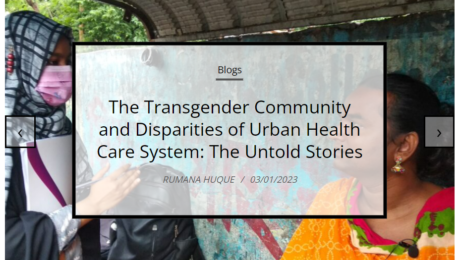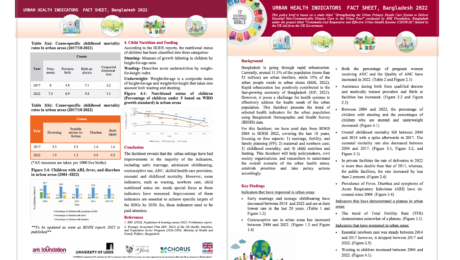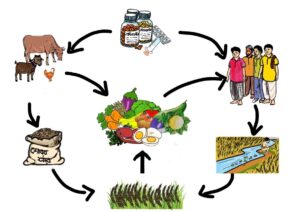Background: People with severe mental illness (SMI) die earlier than the general population, primarily because of physical disorders. Aims: We estimated the prevalence of physical health conditions, health risk behaviours, access to healthcare and health risk modification advice in people with SMI in Bangladesh, India and Pakistan, and compared results with the general population. Method:
- Published in Journal Article, Resources
No Comments
In the crisp and vibrant air of November 2013, a promising initiative emerged – the ARK Foundation. Committed to enriching the landscape of research-based knowledge and making invaluable contributions to the health sector of Bangladesh, the organisation embarked on a remarkable journey. Fast forward to the 14th of October 2023, and ARK Foundation proudly
- Published in News, News and Media
Background: Community engagement (CE) interventions often explore and promote behaviour change around a specific challenge. Suggestions for behaviour change should be co-produced in partnership with the community. To facilitate this, it is essential that the intervention includes key content that unpacks the challenge of interest via multiple sources of knowledge. However, where community lived experience
- Published in Journal Article, Resources
Abstract: Obesity is one of the major contributors to the excess mortality seen in people with severe mental illness (SMI) and in low- and middle-income countries people with SMI may be at an even greater risk. In this study, we aimed to determine the prevalence of obesity and overweight in people with SMI and investigate
- Published in Journal Article, Resources
A transgender named Sumaiya (pseudonym) became sick while collecting money for a long time under the scorching heat of summer. She went to buy medicine from a road side drug store. While buying medicine, she heard many witticisms saying, ‘You also get sick!’ the drug sellers generally compel the transgenders to leave quickly as the
- Published in Blog, News and Media
- Published in Infographics, Resources
Preparedness of Urban Primary Healthcare Centres of Bangladesh in Managing Diabetes Mellitus and Hypertension CLICK HERE TO READ THE POLICY BRIEF
- Published in Policy Brief, Resources
Safeguarding policies and practices in the global health research sector are inspired and influenced by different sources and entities. In most countries, organizations form their safeguarding policies as per the law of the respective country and relevant laws of the host/donor countries they work with. While safeguarding policies are not the same in all research organizations
- Published in Blog, News and Media
Have you ever wondered what would happen if no medicine were effective to treat illnesses, caused by bacteria, fungi, viruses, and parasites? I am sure you have never thought about it. But it could happen because of a process known as “Antimicrobial Resistance or AMR”. We will discuss about AMR later. First, let us familiarize
- Published in Blog, News and Media
- Published in Policy Brief, Resources











